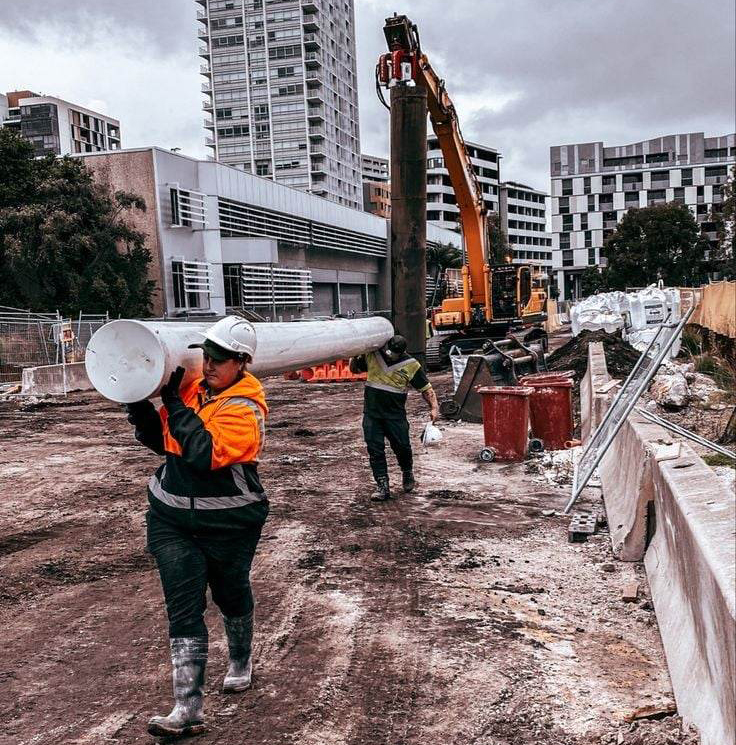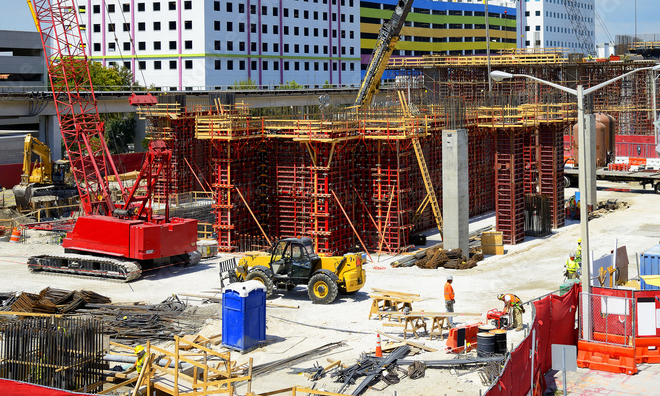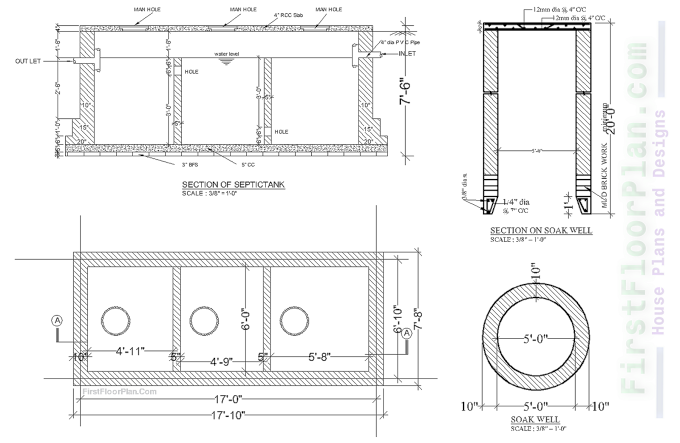Proper Groundworks are essential for the stability, functionality, and long-term performance of a residential building. They lay the foundation, prepare the site, and establish the necessary infrastructure, ensuring a solid base for construction and the overall success of the project.
The following are some of the most important reasons why groundworks are important for residential building construction:
To provide a stable foundation: The foundation of a building is its most important structural element. If the foundation is not stable, the building could collapse. Groundworks help to ensure that the foundation is properly constructed and that it can support the weight of the building.
To prevent flooding: Groundworks can help to prevent flooding by installing drainage systems. Drainage systems help to remove water from the site and prevent it from pooling around the foundation. This helps to prevent the foundation from becoming saturated and weak.
To improve the appearance of the site: Groundworks can help to improve the appearance of the site by removing debris and vegetation. This can make the site more attractive and easier to work on.
To reduce construction costs: Groundworks can help to reduce construction costs by preventing problems, such as foundation failure or flooding. These problems can be costly to repair. By taking the time to properly prepare the site, contractors can help to reduce the risk of these problems occurring.
If you are planning to build a residential building, it is important to work with a contractor who has experience in carrying out groundworks. This will help to ensure that the project is completed safely and on time.
 |
| Ground Works for Residential Building Construction |
Here the most impotant groundworks that are carried out on a residential building construction:
Demolition: If there is an existing structure on the site, it will need to be demolished before construction can begin.
Site clearance: Once the existing structure has been demolished, the site will need to be cleared of debris and vegetation.
Site survey: A site survey is carried out to determine the condition of the soil and to identify any potential hazards, such as underground utilities or contaminated soil.
Soil testing: Soil testing is carried out to determine the bearing capacity of the soil and to identify any potential problems, such as soft or unstable soil.
Drainage: Drainage systems are installed to remove water from the site and to prevent flooding.
Excavation: Excavation is carried out to create the foundation for the building.
Backfilling: Once the foundation has been poured, the excavation is backfilled with soil.
Compacting: The soil is compacted to ensure that it is stable and that it will not settle over time.
Residential groundworks within the context of civil engineering refer to the specific groundwork activities involved in the construction of residential buildings or housing developments. While some aspects of residential groundworks may overlap with general groundworks, there are specific considerations for civil engineering projects. Here are some key points regarding residential groundworks in civil engineering:
Site Survey and Investigation: Before commencing any residential construction project, a thorough site survey and investigation are conducted. This includes assessing the soil conditions, analyzing the topography, and determining any potential challenges or constraints that may impact the design and construction process.
Earthworks and Excavation: Earthworks involve excavation, grading, and leveling of the site to create a suitable platform for construction. It includes activities such as bulk earthmoving, cut and fill operations, and the removal or relocation of soil or rock materials. Proper excavation and earthworks ensure that the ground is prepared to support the foundation and other structures.
Foundation Design and Construction: Residential buildings require appropriate foundation systems to transfer the loads from the structure to the ground. Civil engineers design and oversee the construction of the foundation, which may include strip foundations, raft foundations, pile foundations, or other types based on the soil conditions and structural requirements.
Drainage Systems: Effective drainage is essential for residential properties to manage surface water and prevent waterlogging or flooding issues. Civil engineers design and install drainage systems, including surface water drainage channels, underground drainage pipes, and stormwater management solutions, to ensure proper water runoff and prevent damage to the building and surrounding areas.
Utility Connections: Civil engineering groundworks for residential projects involve coordinating and installing utility connections, such as water supply, sewage, gas, electricity, and telecommunications. These services are essential for residential buildings and require careful planning, coordination with service providers, and compliance with relevant regulations.
External Works and Infrastructure: Civil engineering groundworks for residential projects also encompass the construction of external infrastructure. This includes the development of access roads, parking areas, pedestrian pathways, landscaping, fencing, and other amenities to create a functional and aesthetically pleasing residential environment.
By considering these aspects and conducting proper residential groundworks, civil engineers ensure that the residential construction project meets regulatory requirements, provides a stable and safe living environment, and integrates seamlessly with the surrounding infrastructure and services.
Civil Engineering ground works can be a complex and time-consuming process, but they are essential to the successful completion of a residential building construction project. By taking the time to properly prepare the site, contractors can help to ensure that the building will be safe and stable for years to come.













%20House%20plan%20with%207%20storey%20Apartmen%20building%20Structural%20desing%20%20DWG%20&%20PDF.jpg)